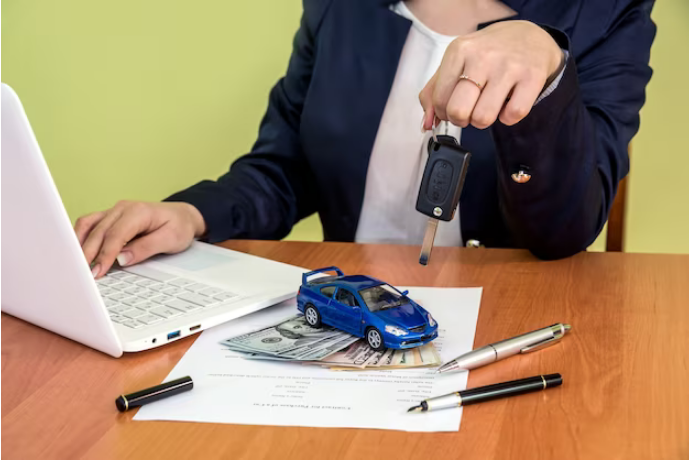California, often associated with its stunning coastline, bustling cities, and thriving entertainment industry, is also home to a significant number of aging and inoperable vehicles. If you find yourself in the Golden State with a junk car taking up space and collecting dust, you might be wondering how to turn it into cash. In this comprehensive guide, we will walk you through the process of selling your junk car in California, from initial considerations to the final transaction, so you can make the most of your automotive asset.
Why Sell Your Junk Car in California?
Before diving into the how, let's explore why selling your junk car in California is a sensible decision.
1. Environmental Responsibility: Junk cars often leak hazardous fluids like oil, coolant, and battery acid, posing a threat to the environment. By selling your junk car, you contribute to responsible disposal and recycling, reducing harmful environmental impact.
2. Free Up Space: Junk cars occupy valuable space on your property, whether in the driveway, yard, or garage. Selling it not only brings in cash but also helps declutter and organize your space.
3. Financial Gain: Selling your junk car puts some money back in your pocket. Even if the vehicle is in poor condition, you can receive compensation based on its salvageable parts and materials.
4. Compliance with California Law: In California, it's essential to properly transfer ownership when selling a vehicle. Selling your junk car ensures you're not held responsible for the vehicle's future liabilities, such as parking tickets or accidents involving the car.
5. Streamlined Process: Selling a junk car in California is relatively straightforward. Many buyers specialize in purchasing junk cars, simplifying the process for sellers.
Steps to Selling Your Junk Car in California
Now, let's delve into the steps you need to follow to successfully sell your junk car in California:
1. Assess the Vehicle's Condition
Before anything else, take an honest look at your junk car's condition. Make a list of any damage, missing parts, or issues. Even if it's in a non-operational or dilapidated state, there might still be salvageable components like the engine, transmission, or valuable parts.
2. Gather Necessary Documents
To legally sell your junk car in California, you'll need specific documents:
a) Certificate of Title: Ensure you have the vehicle's title, which proves your ownership. If the title is lost or damaged, you can apply for a replacement from the California Department of Motor Vehicles (DMV).
b) Bill of Sale: Although not always required, having a bill of sale can help protect you from any future disputes or liabilities. You can find templates online or consult the DMV for guidance.
c) Release of Liability: This form notifies the DMV that you are no longer responsible for the vehicle. You can submit it online or send a Notice of Transfer and Release of Liability (REG 138) form to the DMV.
3. Research Potential Buyers
In California, you have several options when it comes to selling your junk car:
a) Junkyards and Auto Salvage Yards: These businesses specialize in purchasing junk cars for parts or scrap metal. They often offer competitive prices and can provide a quick transaction.
b) Online Buyers: Numerous online platforms connect junk car sellers with buyers. You can request quotes from these services, and they'll send tow trucks to pick up your car and pay you on the spot.
c) Private Buyers: Some individuals or mechanics may be interested in your junk car for restoration or parts. While this option may take longer to find a buyer, it could potentially yield a higher price.
4. Obtain Quotes
Contact potential buyers and request quotes for your junk car. Be prepared to provide accurate details about the vehicle's make, model, year, and its condition. Consider getting multiple quotes to ensure you receive a fair price.
5. Choose a Buyer
Evaluate the offers you receive and choose the buyer that best aligns with your priorities. Consider factors such as the offered price, pickup logistics, and reputation of the buyer.
6. Arrange Pickup
Once you've chosen a buyer, arrange a pickup time that works for both parties. In most cases, the buyer will send a tow truck to transport the junk car from your location. Ensure you have all the necessary documents ready for the transaction.
7. Complete the Transaction
When the buyer's representative arrives to pick up the car, sign over the title and provide any additional documentation, such as a bill of sale. Afterward, you will receive payment for the agreed-upon amount. Most transactions for junk cars are conducted in cash.
8. Notify the DMV
As a crucial final step, notify the DMV of the sale. This step releases you from future liabilities associated with the vehicle. You can submit the Release of Liability form online or by mail.
Conclusion
Selling your junk car in California is a practical and responsible way to free up space, earn some extra cash, and reduce environmental impact. By following the steps outlined in this guide, you can navigate the process smoothly and ensure that you're in compliance with California law. Whether you choose to sell to a junkyard, an online buyer, or a private individual, turning your automotive relic into cash is a win-win for both you and the environment. So, if you've been "California Dreamin'" of selling your junk car, now you know how to make it a reality.





Comments